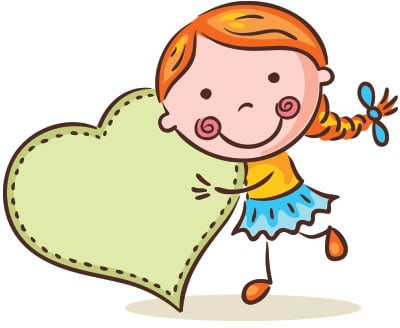Empathy In Kids Is Complex
Empathy in kids can be quite complex, when even adults struggle with empathy. So, how can we help children develop it?
Empathy is complex — putting ourselves in the shoes of another person when we may have no idea what it’s like for them is a challenge, for sure. We work on building empathy continually in our family, all of us. I frequently stop myself and think, “What would I be feeling if I were that person? How can I manage my expectations and reactions better?”, and I try to instil this thought process in my kids, too.
Here are some ways we work to encourage empathy in our kids:
We Demonstrate Empathy At Home
I’ll be honest: I can’t really remember being a little kid, but I do remember feeling rather alone in my feelings, often confused and definitely not in control of who I was. We adults make 99% of the decisions for kids, leaving them feeling less responsible, less empowered, and less able to make independent choices. By putting ourselves in their shoes, we’re better able to interpret their behaviour and respond accordingly.
I always remind myself that whenever my kids are acting out, they’re not giving me a hard time, they’re having a hard time. It’s my job to model empathy so that in turn, they can model it for others. This leads to my next point…
We Work to Empower Our Kids
A child who feels empowered at home typically doesn’t exert excessive power over others outside the home. Their needs are met, and they tend to be more balanced in their reactions to others. Their confidence comes from internal satisfaction, not extrinsic motivation.
We Talk About Feelings
We talk about feelings a LOT. Every day I ask the kids what made them happy and frustrated that day. We talk about why it’s ok to be angry, and it’s alright to cry. We talk about why it’s impossible to always be happy, and how our emotions affect the choices we make and our behaviours.
Moods are often out of our control, so we talk about ways to brighten down days, and how to support others who might be feeling unhappy.
Acknowledging their full range of emotions, and walking kids through handling them helps them understand when others behave in different ways. As parents, we’re not always happy, either. We apologize when we’ve yelled when angry, and we break down the reasons why people act certain ways when emotions take over.
We Encourage a Full Range of Emotions
This is a big one. Often, we hear parents telling kids not to cry, or squashing angry responses. Instead, we encourage the kids to feel all the feelings. It isn’t the feelings that cause problems, it’s how we react to them that can cause issues.
Jealousy is normal, let’s talk about how we can manage it. Sadness or hurt over being left out is normal, so let’s talk about how we can get over the hurt healthily.
We Help Our Kids Read Body Language
There’s so much more to communication than actual conversation. We talk to the kids about paying attention, and understanding when someone isn’t saying something verbally, but may be communicating it through body language. We talk about personal space, and respecting other people, and we talk a lot about how to “give off” a good vibe to people.
This article goes into other details about developing empathy, too, and they’re all very helpful.
Building empathy is important for kids’ emotional development, and even more beneficial as they age.
Emotional intelligence is already inside kids, we just have to nurture it.
Have you ever seen one baby cry in response to another’s distress? Part of this is emotional concern for the other baby’s well-being. When we nurture the concern for others, it builds stronger interpersonal relationships and helps kids navigate tricky social waters as they age. Not only that, but it helps them act more positively towards their community and the larger world around them.
And I think we can all appreciate the importance of that kind of thing.
The general information provided on the Website is for informational purposes and is not medical advice.
If you have a medical emergency, call a physician or qualified healthcare provider, or CALL 911 immediately. Under no circumstances should you attempt self-treatment based on anything you have seen or read on this Website. Always seek the advice of your physician or other licensed and qualified health provider in your jurisdiction concerning any questions you may have regarding any information obtained from this Website and any medical condition you believe may be relevant to you or to someone else. Never disregard professional medical advice or delay in seeking it because of something you have read on this Website.













